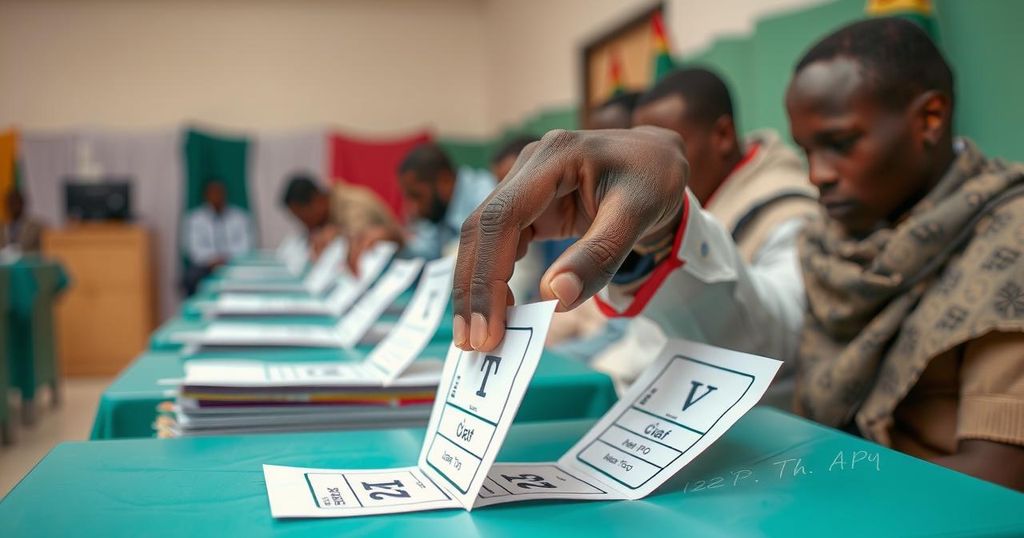Chad’s Parliamentary Elections Amidst Opposition Boycott and Controversy

Chad is conducting its first parliamentary elections in 13 years, framed by the government as a step towards democracy. Opposition parties have called for a boycott, alleging the elections are fraudulent. Turnout has been low in the capital, despite high participation from military and nomadic voters. The elections occur amidst various regional challenges, including security threats and political tensions, as citizens seek legitimacy in their electoral process.
Voting is currently underway in Chad for its first parliamentary election in 13 years, marking a significant event for the nation as the government portrays it as a pivotal move toward ending military governance. Citizens are casting their votes not only for a new parliament but also for provincial assemblies and local councils amidst a backdrop of widespread opposition calls for a boycott. The opposition, comprising various parties, has urged the populace to abstain from participating in what they view as a predetermined electoral process favoring the ruling party aligned with President Mahamat Idriss Deby Itno.
Despite these calls for abstention, reports of voter turnout indicate varying levels of participation, with less enthusiasm noted in the capital, N’Djamena. Election officials attribute this lack of engagement in the capital to adverse weather conditions rather than political discontent. The opposition alleges that the results have already been manipulated prior to the elections, citing a lack of confidence in the integrity of the electoral process.
The context of this election is crucial, given that it represents a continued effort by the military-led government to stabilize its rule following the power transition after the death of longtime President Idriss Deby in 2021. Voter sentiments reflect a desire for change, with individuals expressing hopes for improved employment opportunities and social justice. However, with opposition parties deciding to not participate, the election could significantly consolidate power in favor of the current administration, raising concerns about the true democratic intentions of this electoral exercise.
Interestingly, turnout rates among military personnel and nomadic populations have been labeled as “record” by officials, suggesting a divergence in voter engagement based on demographic factors. Observations indicate that election monitors are actively overseeing the polling process in an environment complicated by regional conflicts, including attacks from Boko Haram and rising tensions in neighboring Sudan. As Chad navigates this critical juncture, the legitimacy of the process and its outcomes will prove significant for its political trajectory.
Chad has been under military rule since the death of former President Idriss Deby in April 2021. His son, Mahamat Idriss Deby Itno, assumed power and announced the need for a transition towards democracy through elections, attempting to re-establish governmental legitimacy. The parliamentary elections serve as a litmus test for the country’s political climate, with a historically low level of trust in electoral processes and widespread allegations of electoral fraud contributing to a tense political landscape. The nation has faced numerous challenges, including poverty, conflict, and climate-related crises, all of which impact the electoral process and citizen engagement.
The parliamentary election in Chad stands at a crucial turning point for the country’s political landscape. With significant elements of the population opting for a boycott and claims of pre-determined outcomes swirling, the legitimacy of the election will undoubtedly be questioned. The engagement of various demographic groups suggests an underlying complexity to voter behavior in these elections, which could either reinforce the status quo or ignite further calls for reform and accountability in governance.
Original Source: www.aljazeera.com








